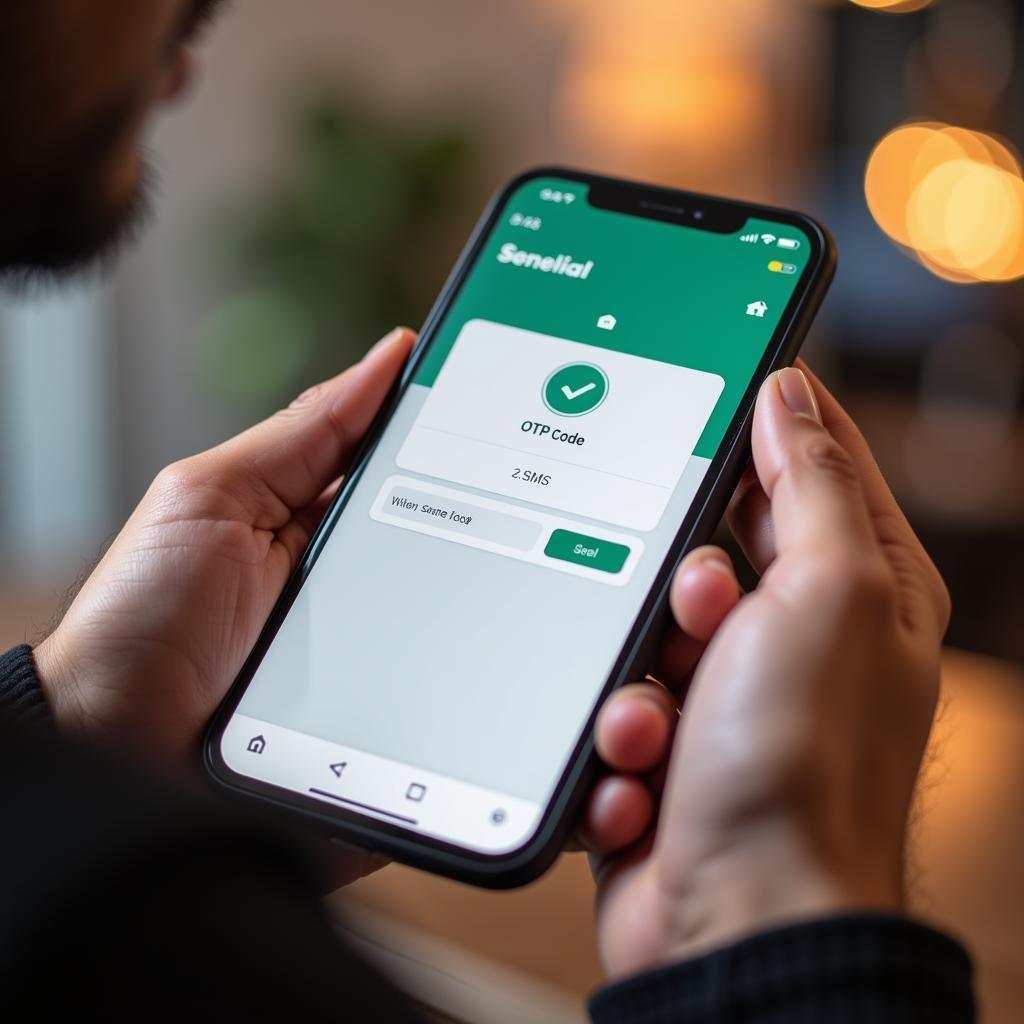OTP codes, or One-Time Passwords, are ubiquitous in Pakistan’s increasingly digital landscape. They act as a crucial second layer of security, protecting your financial transactions and online accounts from unauthorized access. This article will delve into the importance of OTP codes in Pakistan, explaining how they work, the different types, and best practices for using them safely.
Understanding the Importance of OTP Codes in Pakistan
In today’s interconnected world, online security is paramount. With the rise of online banking, e-commerce, and social media, the need for robust security measures like OTP codes has never been greater. OTP codes provide a dynamic, temporary password that is only valid for a single login session or transaction. This adds an extra layer of protection, making it significantly harder for hackers to gain access to your sensitive information, even if they manage to steal your password. They are becoming increasingly important in Pakistan as more and more people adopt digital platforms for everyday activities.
What exactly makes OTP codes so secure? Their temporary nature is key. Unlike static passwords, which can be reused multiple times, OTP codes are typically valid for only a few minutes. This significantly reduces the window of opportunity for cybercriminals to exploit stolen credentials. Additionally, OTP codes are usually delivered through a separate channel, such as SMS or email, further reducing the risk of interception.
 OTP Code Pakistan Mobile Banking
OTP Code Pakistan Mobile Banking
Different Types of OTP Codes in Pakistan
Several types of OTP codes are used in Pakistan, each with its own strengths and weaknesses. The most common include SMS-based OTPs, email-based OTPs, and those generated by authenticator apps. SMS-based OTPs are widely used due to their simplicity and accessibility, leveraging the widespread availability of mobile phones. Email-based OTPs offer an alternative for users who may not have reliable mobile network access. Authenticator apps, like Google Authenticator or Authy, generate time-based OTPs without requiring an internet connection, offering enhanced security against SIM swapping attacks.
Best Practices for Using OTP Codes Safely
While OTP codes offer robust security, their effectiveness depends on responsible usage. Never share your OTP code with anyone, including bank representatives or customer support agents. Legitimate organizations will never ask for your OTP. Be wary of phishing scams that attempt to trick you into revealing your OTP code through fake websites or emails. Always verify the authenticity of the website or app before entering your credentials or OTP.
How to Handle Lost or Stolen Devices
If your phone or device is lost or stolen, immediately contact your mobile network provider to block your SIM card and prevent unauthorized access to your OTP codes. Similarly, change your passwords for all important online accounts as soon as possible.
What to Do If You Suspect Fraudulent Activity
If you notice any suspicious transactions or believe your OTP code has been compromised, immediately report it to your bank or the relevant service provider. They can help investigate the issue and take necessary steps to protect your account.
Conclusion: Staying Safe in Pakistan’s Digital Age
OTP codes are essential for secure online transactions in Pakistan. By understanding how they work, the different types available, and by following best practices, you can significantly enhance your online security and protect yourself from fraud. Remember, your OTP code is your digital shield – guard it carefully.
FAQ: Common Questions about OTP Codes in Pakistan
- What is an OTP code? An OTP code is a temporary, one-time password used to verify your identity for online transactions.
- How do I get an OTP code? OTP codes are usually sent via SMS, email, or generated by an authenticator app.
- Why are OTP codes important? OTP codes provide an extra layer of security, protecting your accounts from unauthorized access.
- Should I share my OTP code with anyone? No, never share your OTP code with anyone.
- What should I do if I lose my phone? Contact your mobile network provider immediately to block your SIM card.
- What should I do if I suspect fraudulent activity? Report it to your bank or service provider immediately.
- Are authenticator apps more secure than SMS-based OTPs? Yes, authenticator apps offer enhanced security, particularly against SIM swapping attacks.
Need more information or assistance? Contact us!
Phone: +923337849799
Email: news.pakit@gmail.com
Address: Dera Ghazi Khan Rd, Rakhni, Barkhan, Balochistan, Pakistan.
We have a 24/7 customer support team available to help. Also check out our related article on 1000w solar panel price in pakistan or you can check our mac base price in pakistan.